S.S. BERENGARIA
So much of what we call management consists in making it difficult for people to work.
- James M. Barrie
- James M. Barrie
Back in Britain, I bought a motorbike, a Matchless 600cc, to be free of busses and trains. I recall amusing myself on it by riding into the heart of the vast metropolis of London, just for the sake of losing myself in its great maze of streets and then finding my way back to Morden again. After all, feeling lost was not an experience you could expect to get in Winnipeg. Nobody got lost there.
One day my cousin Terry and I attended a pub called The Rose and Crown to meet McClain, the friend who'd come to England with me. In the England of that time, you dressed formally if you went out anywhere, even to a pub, whereas in Canada you just walked out the door. Well, there we were, Terry and I, seated at a table in the place, dressed in neat trousers and shirts and ties when in comes McClain in a pair of Bermuda shorts and a sweatshirt, realising a declaration he'd made several months before that he would be going 'beat' to Europe.
I was
acutely embarrassed as I presented him to my cousin as a 'friend from Canada
By the middle of
June, I began to turn my attention to the question of finding work, for my
little store of travellers' cheques in twenty-dollar denominations was getting
a bit thin, especially since the pay-out for the motorbike. My aunt suggested I
might like to work in a holiday camp for the summer. Why not? I thought. I knew not what a holiday camp was at the time, but I swiftly learned that it was a species
of holiday accommodation designed with a military model in mind and commonly sighted
at the seaside.
I was greatly swayed by the fact that staff at such places were accorded room and board as well as a wage, so that I could forget the question of how I would support myself. In addition, personnel had the use of the camp amenities. What better way to savour a working holiday!
I was greatly swayed by the fact that staff at such places were accorded room and board as well as a wage, so that I could forget the question of how I would support myself. In addition, personnel had the use of the camp amenities. What better way to savour a working holiday!
There were two big chains of holiday camps in the land at the time. The bigger one, Butlin's, managed by a man called Billy Butlin, who, according to report, had come to Britain from Canada after the first world war with just £5 in his pocket. The
other chain was Pontin's. As Pontin's were seeking staff at the time, I decided to ride down to their
base in Bournemouth on the south coast of England and apply for a job. If the effort failed, I
would at least have seen something of the country.
Bournemouth Pier
As a result of the journey, I learned of a vacancy for a waiter at Middleton Towers
Holiday Camp near Morecambe in Lancashire . Lancashire ? Where was that? I asked. Two hundred or more miles north of London London Lancashire .
Morecambe, Lancashire
Daylight was fading when I presented myself at the check-in desk of Middleton Towers
When the
formalities had been dispatched, I was handed a key to a chalet and asked to
report to the kitchens for work in the morning. So many details are missing
from my memory of that time - none at all of the train journey from London, none of the ride from the station to the camp - but the memory of
that walk along a lighted footway in the dusk among the chalets as I sought the
one I wanted is still distinct despite the passage of decades.
The 'chalets'
were nothing like the spacious Swiss constructions conjured up in the Canadian usage
of the name. They were just rows of sleeping units with flat roofs, most
containing just a couple of beds and chairs, a wardrobe and a wash basin.
'Cabins' might have been a more suitable term, except that they were not
free-standing, but joined together in rows.
I stopped at the
lodging I sought, inserted the key in the lock and opened the door. Stepping
inside, I switched on the light. There were two beds, one plainly taken by the
look of things, for a pair of trim shoes pointed decorously from underneath one of them.
Red shoes. High-heeled ones. I crossed to the wardrobe and opened the door: Dresses. Pontin's really pamper their staff! I mused. Their every need is
foreseen! I smiled for a moment and then switched off the light and stepped outside, shutting the door behind me,
and retraced my steps to the reception desk to say a mistake had been made.
Another key,
another chalet, also with signs of habitation. I was unpacking my bag in there
when a fellow came in, introducing himself as John Coakley. John proved to be
a marvellous fellow, and we had good times together in the months that followed.
But he never once wore a pair of high-heeled shoes or a dress.
At about a quarter to seven next morning someone thumped on the door to signal it was time to rise. After groping from our beds and getting dressed, we shuffled off
bleary-eyed to the dining hall, as we did every morning in the days that
followed. As we sat despatching bacon and eggs, a shrill female voice rang in the air outside, as though its owner had a peg on her nose. It
issued from loudspeakers fixed on stanchions, and its tone was gluey
with cheeriness.
“Good morning, campers!” it effused, and then a breezy speech ensued, starting with a weather report and finishing with the announcement that breakfast would be served in the dining hall in 15 minutes.
“Good morning, campers!” it effused, and then a breezy speech ensued, starting with a weather report and finishing with the announcement that breakfast would be served in the dining hall in 15 minutes.
As the 'campers'
filed into the enormous 3000-place dining hall and seated themselves eagerly,
the waiters' work began. During their first day, new waiters learned the work
alongside a supervisor who helped with it. After that you had to do it on your
own under supervision.
Middleton Towers Holiday Camp Dining Hall
The first thing
to do was to place a pot of tea and a large jug of milk on each table, which
had been set the night before with cereal bowls, cups and saucers, knives, forks and spoons and little
boxes of breakfast cereal. Each waiter served seven tables of four places each,
and when he’d checked the preferences of the guests – bacon and egg or kippers
– he weathered the swelter of the kitchen, where the white-clad cooks sweated
over stoves, jabbing and scraping in pans with their spatulas, scooping out
shiny jiggling eggs and pink curls of bacon or the odd pair of pallid kippers.
The cooks set the plates in rows on a long counter where the waiters shifted them onto their trays, stacking them four high, divided by tapered aluminium rings to make a little four-tiered pagoda, and then, snatching a rack of toast on the way, they steered this creation out of the kitchen into the hall to begin serving table number one.
The cooks set the plates in rows on a long counter where the waiters shifted them onto their trays, stacking them four high, divided by tapered aluminium rings to make a little four-tiered pagoda, and then, snatching a rack of toast on the way, they steered this creation out of the kitchen into the hall to begin serving table number one.
Carefully now,
you placed the four offerings, one by one, before your guests, seated
expectantly with hands on laps and straightened backs, and then you let them
fall eagerly on their provender, while you went back for four more. And when you'd
served table two, you returned to the kitchen to get a further four offerings for the people at table three, and so on, until at last you'd satisfied the swaying impatience of
the luckless ones designated table number seven.
All the four-place tables here were grouped in pairs, set out in God knows how many columns of
seven, and as the waiters advanced down the aisles dispensing breakfasts, the
chatter of the campers and the clatter of the crockery and the clink of knives and forks and spoons rose to an almighty din, while the last tables were served and chairs scraped
the floor as the campers began to decamp.
As the frenzy faded in the emptying hall, you gathered from the deserted tables all the empty jugs, tea pots, toast racks, plates, cups and saucers and all the abandoned knives and forks and spoons, and then you lugged them all back, trayful after trayful, to the kitchen, where the cooks, now converted into washers, scoured stacks of greasy plates and heaps of heavy silverware in clouds of steam rising from the stone sinks, while the waiters, now alchemised into driers, wiped dishes with antient and frayed cloths, until all was washed spotless and dried dropless and stowed in white drawers and cupboards, right down to the final spoon.
As the frenzy faded in the emptying hall, you gathered from the deserted tables all the empty jugs, tea pots, toast racks, plates, cups and saucers and all the abandoned knives and forks and spoons, and then you lugged them all back, trayful after trayful, to the kitchen, where the cooks, now converted into washers, scoured stacks of greasy plates and heaps of heavy silverware in clouds of steam rising from the stone sinks, while the waiters, now alchemised into driers, wiped dishes with antient and frayed cloths, until all was washed spotless and dried dropless and stowed in white drawers and cupboards, right down to the final spoon.
But you were not
finished yet. Now your tables needed to be set for lunch with seven jugs for milk,
twenty-eight bowls for soup, twenty-eight cups, twenty-eight saucers and
twenty-eight knives and forks and spoons. Not till then were you free to leave.
But two hours later you were back, serving seven tureens of soup, twenty-eight plates of food and twenty-eight bowls of dessert. The dirty dishes of twenty-eight campers had then to be gathered again and washed and dried and stored once more before your tables were laid again with twenty-eight places for dinner. And then you were free once more until it was time to tread your aisle again, fetching, serving, clearing and then drying dishes in the kitchen, and laying your tables yet again for breakfast with the thick, white china and the hefty knives and forks and spoons.
But two hours later you were back, serving seven tureens of soup, twenty-eight plates of food and twenty-eight bowls of dessert. The dirty dishes of twenty-eight campers had then to be gathered again and washed and dried and stored once more before your tables were laid again with twenty-eight places for dinner. And then you were free once more until it was time to tread your aisle again, fetching, serving, clearing and then drying dishes in the kitchen, and laying your tables yet again for breakfast with the thick, white china and the hefty knives and forks and spoons.
Only now, when
the time was about seven in the evening, were your duties done for the day and
you were free for what little remained of it. You had sweated steadily
for nine or ten hours during the day, and for that lengthy sentence of labour
you were awarded the princely sum of one pound sterling. It was just wage slavery
in all but name.
For a short
stretch along the sea, the camp was divided from the beach by a thick wall
strong enough to withstand an armoured attack, and this, along with the gate
that admitted only 'authorised personnel', and the open compound that could
have been a parade ground, and the long rows of 'chalets' that resembled
soldiers' barracks, and the loudspeakers fixed high on stanchions and the great
hall where hundreds had their meals as in an army mess – all this gave the camp a distinctly military feel. And seen from the beach the whole place had the aspect of a great fortress by the sea.
Since it was
remote enough from Morecambe to make trips to the town impracticable, you spent your evenings (and your money too) within the confines of the camp.
After work, John and I regularly returned to our chalet for a wash and change
of clothes before venturing out again to visit one of the camp bars. John was
from Liverpool, and I learned that Liverpudlians, or 'scousers', as they were
nicknamed, from a type of meal once eaten among the poor of the city, were a
very friendly and cheery lot – and very witty too.
John had already
met several of the camp’s staff – many of them scousers – and now I met them
too. There was a great, meaty fellow with thick glasses called Tommy, also a
waiter, but he was from 'down south' as they said in the North Country . Then there was a
little lad with a perennial smile called Denny, a waiter too. And then there
was George, one of the cooks. He had a big belly and an even bigger fund of
jokes, and he had one of those hangdog faces that are just funny to look at.
Whatever the
topic of conversation, George was sure to insert a joke or two. In the daytime
he sweated in the kitchen over a hot pan on a stove or a pile of dirty plates
in a sink, but in the evenings he often got upon the stage during one of the
entertainment evenings organized by the 'blue coats' – a class of Pontin's
staff a cut above humble cooks and waiters, distinguished by the blue blazers
they wore – he got upon the stage and tickled the campers’ fancy with a string
of jokes and anecdotes. Many years later, when I came to settle in England Lancashire .
In our favourite
bar, the largest one of the camp, a chap with a camera customarily threaded his
way among the tables taking snaps of their occupants. Several props were brought
along by his wife, and you could have your photo taken with a short stuffed
figure of Yogi Bear, for instance, or a gigantic inflated plastic green thing
contrived to look like a beer bottle. Or you could be pictured perhaps in an
oversized and misshapen sombrero. The photos were displayed for sale next day
on a stand in the camp chemists’ shop. John and I purloined any we appeared in.
I still have the ones I appropriated. They are the only photos I possess of the
time I spent in England
One day I was
obliged to take advantage of the British National Health Service. Denny and I were out for a ride on my motorbike
when I took a curve in the road a little too quickly. The bike toppled sideways
and we with it. Denny jumped clear but my right leg got caught between the
machine and the road. When I wriggled free and got to my feet again I saw that
no real damage had been done to the bike, but that my trouser leg had been torn.
When I pulled it up I saw that the skin underneath had been somewhat scraped. I
would have to get a dressing for it, so I took my passenger back to camp and
then rode off for the hospital in Morecambe.
Queen Victoria Hospital, Morecambe
Inside, a nurse
led me to a bed and drew curtains round it. Then she asked me to sit on the bed
and take my trousers down. When she'd inspected the red smear she disappeared,
leaving me to contemplate the patterns on the curtains. In a little while the
sound of laughter issued from somewhere down the corridor and what sounded like
the clinking of cups and saucers. Were they having a tea-break?
It's true I
wasn't in any real pain from the light abrasions that ran down my right thigh, but
there was a scarlet patch about the size of an old penny just above the kneecap
where the flesh had been gouged deeper, and that was jumping a bit. I didn't
know whether to laugh or to curse. Back in Canada England
John and I had
settled down to a regular routine. We slaved away at our tables each day, and
spent what little we'd earned in the bars at night. I drank bottles of Skol
Lager at first, as I had done down south, for my cousin had failed to interest
me in English beer. It was too strong-tasting, I thought. But lager was
expensive at two and a penny for a small bottle. The Dutton's Bitter John drank
– and recommended – was much better value at one and nine pence a pint. I tried
a sip or two, then took to it like a thirsty camel. So now I had food, lodging,
friends, good beer to drink, a new country to explore, a whole new life in
fact. What more could a man want? …
Ah, what indeed?
Ah, what indeed?
Yes, I was ready
to play the game of love again, despite the hurt I still harboured in my heart.
But what a fantastic gamble it was! Twice I had staked all my emotional capital
on it, so to speak, and twice I had lost. Any rational character would have looked about for something a bit more certain - sport, maybe - or
beer - or books! Not that I ever spurned beer! Beer has been a minor love
affair of mine all my life. But a bunch of blokes getting tanked and telling
lewd stories and boasting about their supposed sexual conquests? No thanks! I
liked beer for its taste and for the relaxation it could bring, and I
liked English pubs.
But wherever I was in those days and whatever I was doing - draining a pint in one of the camp bars, maybe, or slaving away at my tables in the dining hall, or peering down at the couples gliding about on the ballroom floor - my romantic fancy would flit here and there and hover for a moment over the face of any girl that came within the ambit of my eye. Come to think of it, it's no different now!
But wherever I was in those days and whatever I was doing - draining a pint in one of the camp bars, maybe, or slaving away at my tables in the dining hall, or peering down at the couples gliding about on the ballroom floor - my romantic fancy would flit here and there and hover for a moment over the face of any girl that came within the ambit of my eye. Come to think of it, it's no different now!
One day, it
sailed right into the glass front of a booth that encased a pretty girl, as
though she were some rare and beautiful butterfly. Her job was to sell tickets
of some sort. Denny and I were loitering nearby. No Englishman, I knew, would
be forward enough just to go up and ask her out, so it was with a sense of
double daring that I approached the booth and asked the girl what her name was.
I would show these English part-timers how to do it! I can't remember exactly
how the conversation went, but I learned she was from Manchester 7.00 pm somewhere or other in the camp grounds.
I turned up well
before seven and waited. Seven came and went, but there was no sign of her.
Five past...
Still no sign. Was she held up for some reason?
Ten past...
Where was she?
Quarter past...
Was she coming at all?
Twenty past...
She couldn’t be coming now…
It must have
been about half past, or maybe twenty-five to - just to be sure - before I finally stopped this stupid staring this way and that. When
I re-joined John he sniggered and said I'd been 'stood up'. It was no wonder
English lads were so reticent when the penalty could be so humiliating. Had she
and her friends been watching and giggling in concealment nearby, while I paced
and fretted and peered at my watch? This was not the last time I was 'stood
up', but it was the last time I was quite so 'forward'. Some of that North American
brashness had been knocked out of me. I began to become English.
Girls, girls,
much on my mind at that time, despite my apparent lack of success with them
and regardless of the recent emotional burn I'd suffered by daring to touch the flames of love. In spite of all this misery, I was prepared to respond positively when another attractive las discharged a charm offensive at me. She was one of the many
'supervisors' who oversaw the work of the cooks and the waiters in the dining
hall, and I found myself actually lying beside her one day as she sat and
chatted with me on the strip of grass that ran before the rows of chalets. That day, I
was witnessing the remarkable effect a bit of sunshine can have on the
conduct of a race whose weather is cloudy more often than not.
At the first gleam of sunshine, many of the Pontin's staff just flocked from their doors to sit or
sprawl on the grass outside. A couple of the lads had unbuttoned their shirts or removed them altogether, and the girl sitting beside me - an attractive one - was asking me why I didn't remove mine. Well, to tell you the truth, I didn’t
think the weather all that warm – although the sun shone clear in the sky – and
anyway I'm not the sort to embrace strange ceremonies.
I declined to remove my shirt, and she, becoming persuasive, began to unbutton it. This seemed an invitation. I bent my head towards her face and tried to kiss her lips, but her response to that was just to push me away! However, when the flames she'd kindled died down, she started stirring the embers again with another attempt to unbutton my shirt.
I declined to remove my shirt, and she, becoming persuasive, began to unbutton it. This seemed an invitation. I bent my head towards her face and tried to kiss her lips, but her response to that was just to push me away! However, when the flames she'd kindled died down, she started stirring the embers again with another attempt to unbutton my shirt.
Did I say it
wasn't warm? It was distinctly hot now! I was
hot - glowing hot - for this lovely little bitch that wouldn't let me touch
her! She was just toying with me. I knew that well enough because I remembered
Brenda. Her purpose was simply to warm herself in the fire she'd lit, this
seductive little mammal, but she herself was cold, cold as a reptile. And there
was nothing I could do about that. But one hopes against hope at times. I asked
her out for the evening. She would be at Ye Old farm house, she said, a bar that had originally been an ancient farmhouse. I knew what
that meant. I had seen her there before holding court before a bunch of eager lovers.
I didn't go.
I didn't go.
A real lottery,
this game of love. Could you ever win?
The problem was
not that no women were interested in me. It's just that I wasn't interested in the ones that were interested in me. I recall another little supervisor with a shapeless form, spectacles and a pasty
complexion who smiled warmly whenever I passed her by, but for me her amorousness
was spoiled by the smell of her sweaty armpits.
Her manner towards me became markedly unpleasant, I remember, when she
realised her interest was not returned.
And there was
yet another great strapping woman with an eager face and plentiful breasts, who looked like she could - and would - eat me
for breakfast. But she just couldn't perceive my lack of interest in her. She repeatedly
took my politeness for receptiveness. I finally punctured the illusion in a
café one night by feigning to be a little drunker than I was, and, taking
advantage of the fact that I had quite genuinely stumbled against a piece of
furniture, I let myself go crashing to the floor in a great clatter of chairs
and tables. I recall the look of utter disgust on
her face as she stood looking down at me. She lost interest then.
I have a fancy that this woman could well have been the owner of the red shoes I encountered
on my first night in the camp when I was sent to the wrong chalet. It's
possible that no mistake had been made that night, after all, and that I was sent there by
her boyfriend, who hoped that an amorous relationship might develop between her
and I that would relieve him of her unfeminine forwardness!
One Saturday,
maybe about the middle of July, John and I had just stopped work and were anticipating the motorbike trip to Liverpool we had planned for the next day to visit John's parents, when a camp official knocked at our
door to say that, owing to a shortage of staff, we would be required to
work the next day. Well, when you slave away for nine or ten hours a day for
six days a week you feel entitled to a day off, so next morning we jumped
on the bike and shot out the gate as planned. Work be damned! We rode into
Morecambe and then pressed south on the M6.
Charnock Richard junction on the M6
Charnock Richard junction on the M6
John's 'mam' and
his 'ole fella' lived in a great human warren known as St Andrew's Gardens
Apartments, not far from the city centre. This was a pile of blackened bricks
five floors high, built in the shape of a ring and known locally as 'The Bull
Ring'. It was a great coliseum of a place housing hundreds, with a great arched
entranceway opening into a circular cobbled courtyard with heavy balconies
running round the inner walls. We climbed a dark stairwell, where the smell of
urine hung in the air - Saturday night drunks, John explained - and then leaned on
the solid parapet and peered down into that dim round pit. I thought of all the
light and spacious dwellings I'd lived in and winced.
St Andrew's Gardens Apartments, Liverpool
St Andrew's Gardens Apartments, Liverpool
But then John began to describe Bonfire Night there, a memory clearly dear to him, for his eyes grew a bit
misty. And for a time I saw a little of what he was seeing as he described it:
the jumbled tower of boxes and crates and old doors and broken sections of
fencing and split mattresses and bits of beds and tables and scrap wardrobes
that had been raised in the central space like some crazy monument; the great
flames that leapt at the dome of stars overhead; the billows of smoke rising
within the walls as if from some huge cauldron; and a great stirring of people
flickering orangely as they talked and laughed and gestured.
And I saw the children too. Some, with scarlet faces, prodding the blaze with sticks and starting up flocks of sparks; others, almost invisible, slicing the darkness with fiery arcs or cupping a trembling flame against the breeze, their features lit like devils'; and farther back in the darting shadows of the crowd the young ones with faces illumined like pearls, motionless beside their mothers, fascinated.
And I saw the children too. Some, with scarlet faces, prodding the blaze with sticks and starting up flocks of sparks; others, almost invisible, slicing the darkness with fiery arcs or cupping a trembling flame against the breeze, their features lit like devils'; and farther back in the darting shadows of the crowd the young ones with faces illumined like pearls, motionless beside their mothers, fascinated.
The apartment of
John's 'mam' and 'ole fella' was small and modestly furnished. Passing through
the door, I felt like a rich kid come to visit the home of a poor friend. But
there was real warmth in the greeting I got. Scarcely inside the place, I was
pressed to a seat at a table opposite John, where his 'mam' levered out a neat
square of meat and potato pie each from a baking tray and slipped them onto plates
placed before us. The family had gathered up few enough of the things of this
world, but they were more than eager to share what little they had, and though
their modest lives were carried on several floors above the ground, you could
not have wished for more earthy, more genuine or more generous people.
Meat and Potato Pie
Meat and Potato Pie
Soon after our return to the camp, a couple of burly security guards came round to our chalet
with the message that we'd been sacked for refusing to work that day. It was
their job to see that we cleared out immediately. But they were polite enough
about the affair, and one of them even told us to take our time when we began
gathering things together quickly. I experienced little in England
But you know,
there was something else in all this that was very different from life in Canada
In retrospect, the memory of my time in that holiday camp reminds me of the theme of a British television series that appeared some years later and developed quite a cult following, even in
Scene from 'The Prisoner' Television Series
But where to
clear out to? I had no doubt where I was going - back to London
ButLondon
But
And there we all are. Or, rather, were! That is Tommy on the extreme left and little Denny to the left of him. I am fifth on the left and John is seated next to me, with George Roper next to him.
A few photos to
attach some images to the writing:
The Berengaria,
built in the style of an ocean liner, housing the reception area and a
2000-seat theatre.
Inside the Theatre
This photo shows
some of the chalets in the days when holiday camp culture was thriving.
The old farmhouse
that was converted to a bar.
The camp closed
in 1993 and then began to disintegrate.
Sad to see...
The reception desk where I presented myself
for work in May of 1964 and was sent to the wrong chalet.
This photo of the camp appeared in an article published by The
Bay radio station in May of 2014. As you can see, the Berengaria has been
completely demolished.
A photo of George Roper on television in 1975, 11 years after I left the camp. I've chosen
this particular photo for my post because it shows a characteristic pose of
the mouth that you can see also in the photo of him taken at the holiday
camp. This sideways turn of the lips, I noted, is a kind of 'style' that many
Liverpudlians seek to emulate. I think it is meant to suggest that they don't
take life too seriously.
As I was
preparing this post I was saddened to learn that George had died of cancer in
2003.
*********************************************
After a lengthy
search I found this picture of 'The Bull Ring'. There is no date on it but it appears
to have been taken in the 1960s or 70s. At any rate you can see that it is
still inhabited by poor people. But I was greatly surprised to learn that the
place still exists, because I thought that it would have been demolished in the
great slum clearances of the 60s and 70s. But I found that the building was not
all that old, for it was built in 1939 specifically to house people on low income.
This is what it
looks like now. All the poor people have long gone. They have been 'rehoused'
in areas like Kirkby, where land is much cheaper but where there is little
possibility of finding work. The old place has been completely renovated
and divided up into flats for students at £350 a month.
For the next story, click on the appropriate link:









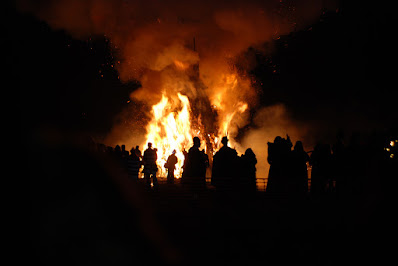

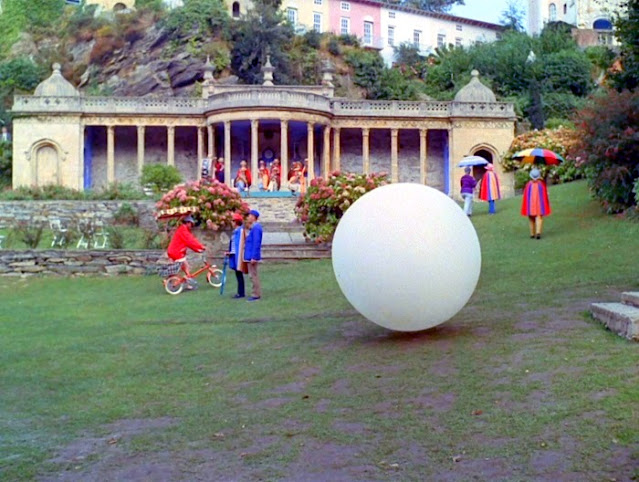











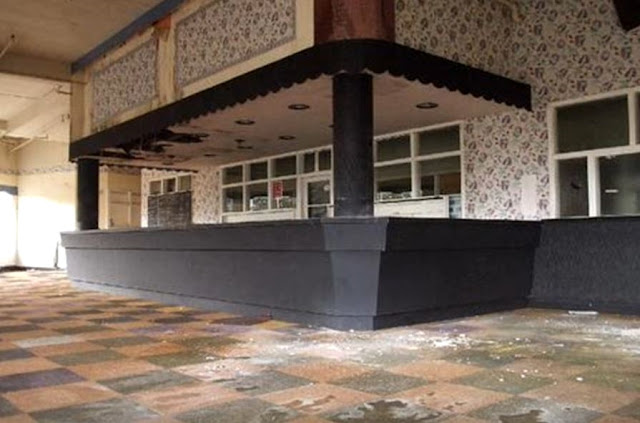


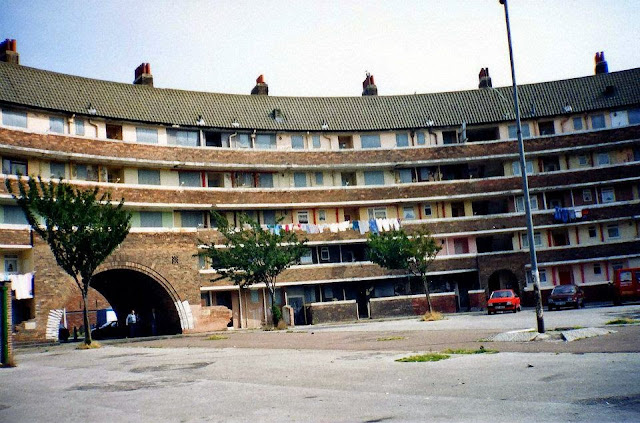




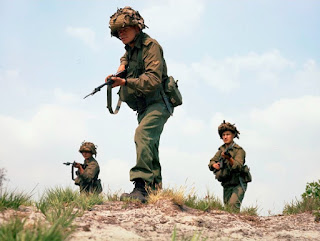




























No comments:
Post a Comment